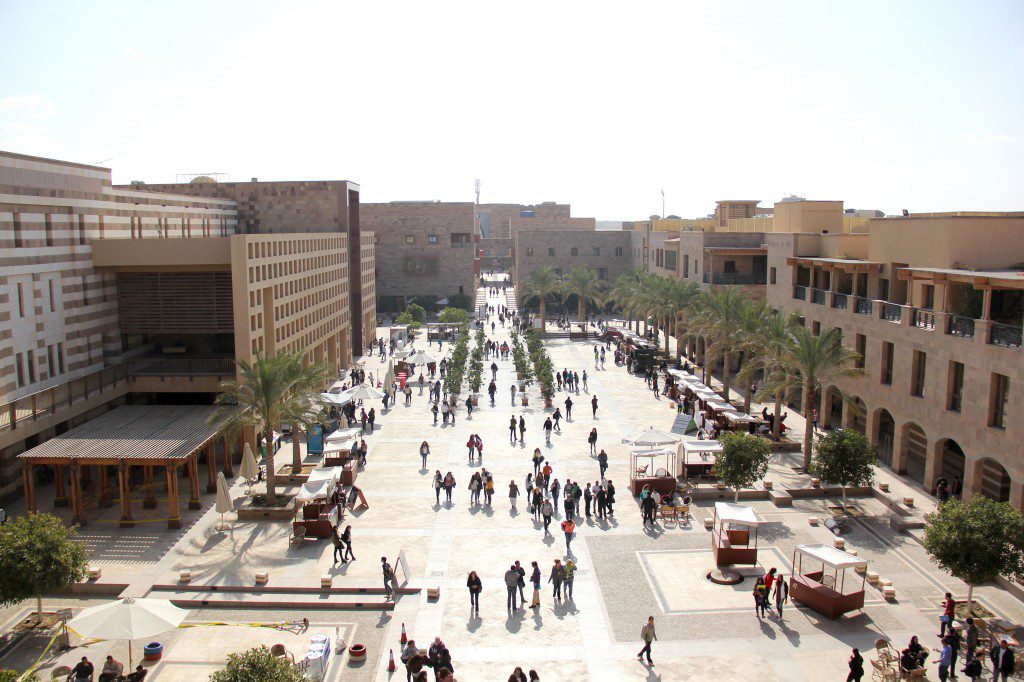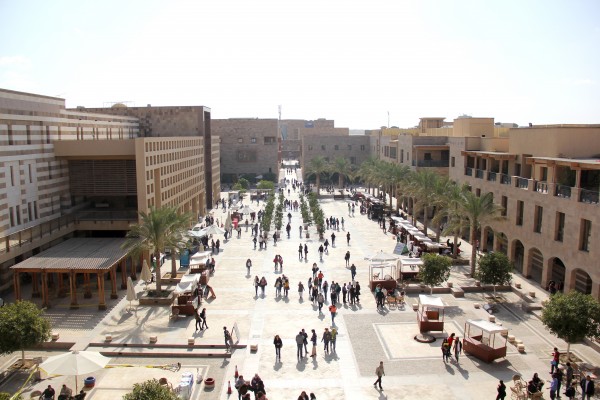BY SALMA ABDALLAH
AND SALMA HEGAB
Prime Minister Hazem El-Beblawi’s cabinet resignation last week surprised many in the AUC community, but some saw it as an opportunity paving the way for technocrats who can effectively manage the country’s crises.
On Feb. 24, El-Beblawi said in a mid-day televised speech that “reform cannot take place through the government alone,” and urged Egyptians from all walks of life to participate in achieving change.
“It is time we all sacrificed for the good of the country. Rather than asking what has Egypt given us, we should instead be asking what we have done for Egypt,” he added.
The resignation created furious debate on social media and local satellite networks.
Speculation was rife as some theorized that the resignations would pave the way for Defense Minister Abdel-Fatah El-Sissi to announce his run for presidency, while others questioned which ministers would remain in place.
Professor of Journalism and Mass Communication Hussein Amin told The Caravan that it was about time for the government to resign.
“The record of their achievement is very limited and there’s a national feeling that this government should leave and be replaced,” Amin said.
However, he noted that we should be giving the previous government credit for accepting the responsibility at a very difficult time.
“Right now, we’ll have to wait and see if the new government will be able to achieve the demands of the Egyptians,” Amin added.
Beblawi’s government has been the focus of considerable criticism in the past few weeks, with some in the political spectrum openly calling for resignations of some ministers.
In recent weeks, Beblawi’s government was challenged by several strikes among textile workers, low-ranking policemen, doctors as well as public transport workers who expressed anger over low or unpaid wages and ineffective management.
“I think it is the right decision, their performance was a failure,” says Business Administration senior Nouran El-Berry.
“They should have resigned a while ago,” she added.
However, she believes that workers around the country should stop demonstrating and “give the government some time to solve their problems”.
While some labor organizers, such as Iron and Steel Workers leader Mohamed Omar, said workers were happy to hear of the cabinet resignations, others remained cautious.
Political Science senior Merna Aboul-Ezz believes any new government formed now will prove to be inefficient because it will serve for only two months until the election of a new president.
“A new government wouldn’t be able to do anything that the previous government couldn’t do,” Aboul-Ezz said.
The interim government was to lead the country until the presidential elections, which are believed to likely be held mid-April.
On Tuesday, Interim President Adly Mansour asked Ibrahim Mehleb, the former Housing Minister, to form a new government. Mehleb is a former member of the National Democratic Party and the ex-chairman of Arab Contractors Company.
Economics junior Ahmed Safwat believes Mehleb is a good choice for the prime minister’s position.
“He is a successful engineer, technocrat and has good managerial skills,” Safwat said.
Omar Abdel-Sattar, a Computer Engineering junior, sees opportunity in the cabinet resignation.
“We need a better economical branch in the government; the ministers of finance and investment were weak and incompetent,” Abdel-sattar added.
But there are some who remain cynical of the government’s intentions.
Electronic Engineering sophomore Mohamed Hany thinks the resignations were part of an attempt to create greater publicity for Defense Minister Abdel-Fattah El-Sissi, who is rumored to be considering running for president in upcoming elections.
“The new government will probably follow the same plan followed by the previous government,” Hany said.
“We will end up having the same problems.”
But Al-Wafd party member Ahmed Attalah believes that the resignation was only a move to “extend this government’s longevity till after the presidential elections.”
In his televised address last week, El-Beblawi acknowledged that his cabinet took on the responsibility of managing the government during difficult times, met with economic and security challenges.
He said it was not necessarily comprised of the most qualified ministers, but people who were willing to take on the responsibility at such a critical time.
He said the government has done well fending off the on-going terrorist threat.
“Every decision this government made came after deep study of all aspects related to the decision,” El-Beblawi said in a statement.
At press time, Mehleb appeared to be moving quickly; he merged some ministries and kept at least 15 members of the cabinet in their current positions.
These include Interior Minister Mohamed Ibrahim, Foreign Minister and former Dean of the School of Global Affairs and Public Policy Nabil Fahmy, Information Minister Doreya Sharaf El-Din, and Minister of Tourism Hisham Zaazou, among others.
El-Sissi, who two weeks ago was endorsed by Russian President Vladimir Putin, is expected to remain in his position as defense minister.
A firm date for the country’s presidential elections has not yet been determined.
